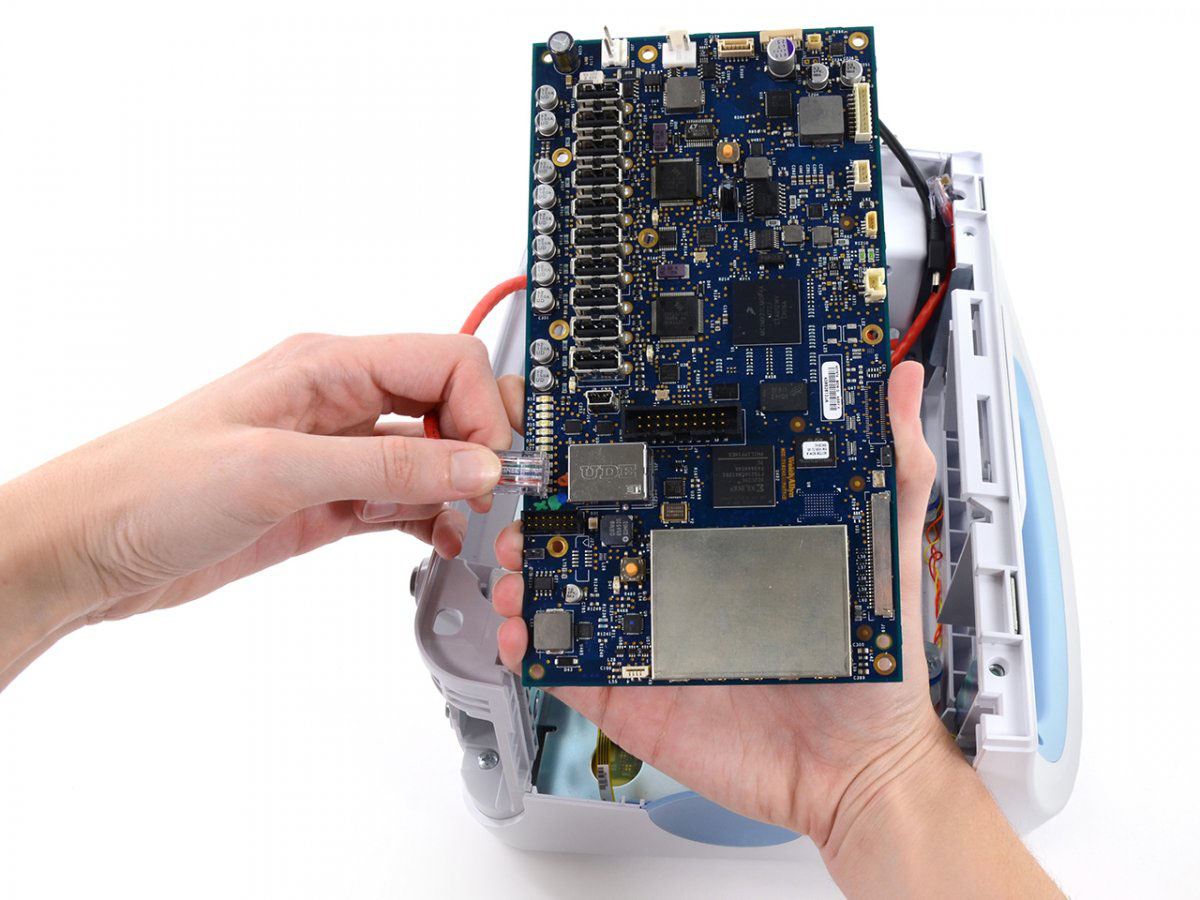In the middle of a pandemic, you’d think that medical device manufacturers would do whatever they can to ensure their life-saving devices keep working properly. I mean, who wants to add even more burden to our overly-burdened frontline workers?
Right?
The US Public Interest Research Group Education Fund today published a study on the ways that manufacturer-imposed restrictions on device repair cause delays in hospitals. They spoke with over 200 biomedical technicians—or “biomeds”, the repair techs working behind the scenes to keep devices at hospitals functioning—to understand how medical device manufacturers restrict access to parts, tools, and information they need to repair machines on-site. Since March, PIRG reports, nearly half of the biomeds they spoke to have faced these restrictions. Sound familiar? It should, because we’ve seen these same tactics used by other global giants such as Apple and John Deere.
“Manufacturers have an incentive to limit options to benefit their own services, which typically cost significantly more,” PIRG points out in the study. Some manufacturers provide some or all of the necessary repair documentation for their devices, while others require biomeds to purchase access keys or insist that the repairs be performed by their own technicians—who usually have to travel to the hospital. But now, to prevent the spread of COVID-19, travel is limited and these technicians are not allowed into the hospitals.

It’s important to note that PIRG isn’t calling for just anyone to perform these repairs. Biomeds are trained professionals who know what they’re doing, and a 2018 FDA investigation found that “the objective evidence indicates that many OEMs and third party entities provide high quality, safe, and effective servicing of medical devices. So why can’t they have access to the tools and software they need to do their job?
“Manufacturers claim safety is the main reason they don’t want to provide access to service information, training, software, or sell parts on fair and reasonable terms,” PIRG writes. “But the FDA study shows that existing regulatory standards appear sufficient to guard patient safety.”
At iFixit, we have worked with biomeds for years in our efforts to get Right to Repair legislation passed in the United States, and they have told us how they rely on forums and their own networks to find and share repair manuals. They contributed thousands of these manuals to the online medical repair database that we launched in May—a crowdsourced project born from sheer necessity.
While these challenges aren’t new, the COVID-19 pandemic is placing unprecedented stress on our healthcare system, and this model cannot continue. As we reckon with our changing social landscape, let’s keep pushing for legislation that will hold manufacturers accountable and allow biomeds to more easily repair the equipment in their charge—so that doctors can more easily save lives.




crwdns2947414:01crwdne2947414:0
Yep - a lot manufacturers hate people working On their equipment. Masimo and Draeger are making st the worst I deal with. Masimo is so bad they them selves don’t even have a repair facility in Australia with repairs having to go back to the US and that’s for module replacements not even component level repairs.
some manufacturers have claimed that be performing a component level repair the repairer is now classed as a “manufacturer” .
They fail to realize that THEIR equipment has already failed which is why it NEEDS repair.
Bernie - crwdns2934203:0crwdne2934203:0